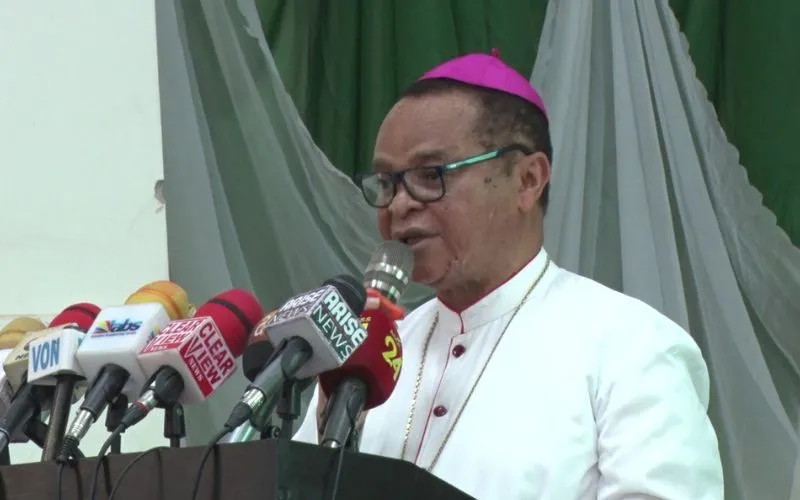“The Church has ceaselessly emphasized that collaboration between AI experts and social development practitioners is crucial,” he recalled, and emphasized, “Despite the enormous benefits, the development and deployment of AI digital technology must be approached with ethical rigor.”
According to the Nigerian Catholic Archbishop, “We must strive for a balance that prioritizes human welfare alongside technological progress, mindful of the ethical and moral dilemmas.”
There is also the need to be mindful of “risks such as job displacement, threat to peace in the world, spread of falsehood through propaganda, manipulation of the human person, and privacy concerns through advanced hacking and deep fakes,” he said in his keynote address for COMMWEEK 2024 organized under the theme, “Artificial Intelligence: Challenges and Opportunities for Evangelisation and Social Development.”
The 72-year-old Catholic Church leader, who started his Episcopal Ministry in July 1990 as Bishop of Nigeria’s Catholic Diocese of Umuahia observed that “despite its versatility and technological prowess, AI remains a facsimile of the original, namely human cognition.”
“Today, computers can perform tasks traditionally requiring human intelligence, such as understanding natural language, recognizing patterns, learning from data, and making decisions,” he said.
This latest computer performance, Archbishop Iwejuru said, “has turned out to be a cause for joy and a reason for worry at the same time – joy because of the enormous positive possibilities as a result of the digital technology; and worry because of the grave life-defining dangers they pose at the same time.”
On his part, the Deputy Vice Chancellor of Augustine University Ilara-Epe, Lagos State, Fr. Prof. Anthony Akinwale noted that “despite the fears associated with AI and other technologies, religion cannot ignore the accomplishments of science and technology.”
In his address on May 8, Fr. Akinwale emphasised the need for AI to “promote the common good. It shouldn't work against the common good. Of course it can help. It can be used to propagate the gospel.”
He added, “Today, to carry out that mandate, agents of evangelization have to go into cyberspace to make sure there is an ethical surveillance of what is going on in cyberspace, and to make sure that values of the gospel are made present in cyberspace, so that what is called artificial intelligence can be used for the common good, not in ways that are destructive to the common good.”
Also speaking during the May 8 event, Cardinal John Onaiyekan said, “The position of the Pope has been in line with the constant magisterium of the Church that all scientific progress is a gift of God to humanity, to be used for human well-being to the glory of God.”








